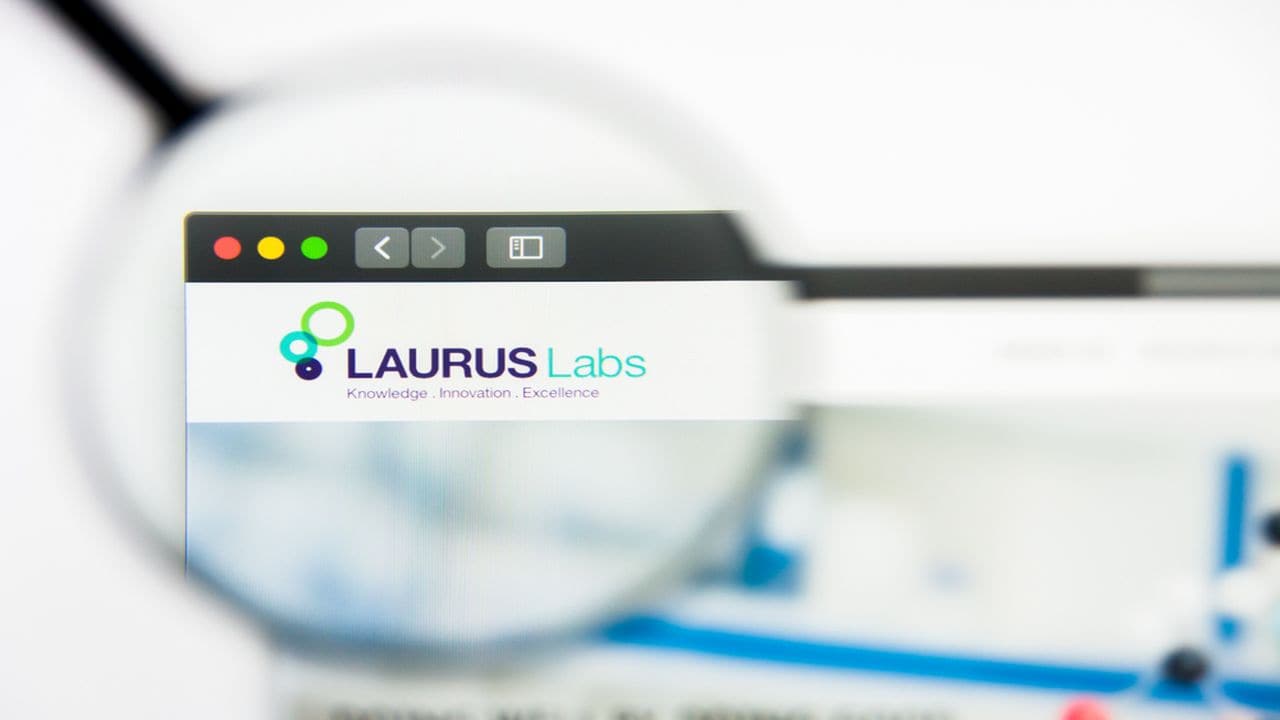Advertisement. Remove ads.
India’s CDMO opportunity is very huge, but regulatory delays could hurt, warns Laurus Labs’ Chava
Laurus Labs has expanded its R&D footprint in Genome Valley with over 1,000 scientists and a half-million square feet of research space. The company is also building a new facility for cell and gene therapy as well as antibody-drug conjugates, which is expected to be operational by the end of next year.

Share this article
India’s contract development and manufacturing organisation (CDMO) industry has a “very huge” opportunity ahead, but regulatory bottlenecks could prevent companies from fully capitalising on it, Laurus Labs CEO Satyanarayana Chava told CNBC-TV18.
“The CDMO opportunity for Indian players is very huge. It all depends on how much we can deliver. It has two dimensions. One is scientific talent, and the second is the available spare capacity to get more business in chemical manufacturing. It all depends on how much investment we are making in this space, both in R&D and manufacturing. The second biggest enabler, which all of us have to think about and act on, is easing regulations to help CDMO companies to get test licences, import-export approvals, and biological reagents clearance. These are taking a very long time. That’s where Indian companies are losing, or potentially may lose, bigger opportunities if we don’t ease these regulations to help CDMO companies,” Chava said.
The company has made significant investments in Genome Valley. “We started our research labs in Genome Valley in April 2006 with a strength of 10 members. Today, we have over 1,000 scientists here, and we have half a million square feet of R&D space. We have invested ₹500 crore in R&D itself so far and are investing, in a phased manner, ₹2,000 crore with our joint venture partner, Krka from Europe,” Chava said. Laurus has also begun work on a 7,000 square metre facility for cell and gene therapy and antibody-drug conjugates with an investment of close to ₹200 crore. The pilot plant is expected to be operational by the end of next year.
The company is also seeing a growing flow of requests for proposals (RFPs) from global innovators. “Percentage-wise, the RFP flow has gone up by 30–40%,” Chava said. However, he cautioned that large programmes take time to translate into revenues, with commercialisation timelines stretching from one year to as long as three years depending on the complexity of molecules.
Laurus Labs, which supplies APIs and formulations for one-third of the world’s HIV population, remains confident about its growth path. Chava said the company will stay on track to reach around ₹2,000 crore in CDMO revenue by FY26 and maintain EBITDA margins of around 25% this year.
He added that shifts such as the China+1 strategy and the proposed US Biosecure Act could further strengthen the position of Indian CDMOs in the coming years. “We believe we have good opportunities, and we have both the scale and the science. We are blending those two to offer solutions to our partners,” Chava said, while noting that the real benefits may only be visible by FY27–28.
Read about our editorial guidelines and ethics policy“The CDMO opportunity for Indian players is very huge. It all depends on how much we can deliver. It has two dimensions. One is scientific talent, and the second is the available spare capacity to get more business in chemical manufacturing. It all depends on how much investment we are making in this space, both in R&D and manufacturing. The second biggest enabler, which all of us have to think about and act on, is easing regulations to help CDMO companies to get test licences, import-export approvals, and biological reagents clearance. These are taking a very long time. That’s where Indian companies are losing, or potentially may lose, bigger opportunities if we don’t ease these regulations to help CDMO companies,” Chava said.
The company has made significant investments in Genome Valley. “We started our research labs in Genome Valley in April 2006 with a strength of 10 members. Today, we have over 1,000 scientists here, and we have half a million square feet of R&D space. We have invested ₹500 crore in R&D itself so far and are investing, in a phased manner, ₹2,000 crore with our joint venture partner, Krka from Europe,” Chava said. Laurus has also begun work on a 7,000 square metre facility for cell and gene therapy and antibody-drug conjugates with an investment of close to ₹200 crore. The pilot plant is expected to be operational by the end of next year.
The company is also seeing a growing flow of requests for proposals (RFPs) from global innovators. “Percentage-wise, the RFP flow has gone up by 30–40%,” Chava said. However, he cautioned that large programmes take time to translate into revenues, with commercialisation timelines stretching from one year to as long as three years depending on the complexity of molecules.
Laurus Labs, which supplies APIs and formulations for one-third of the world’s HIV population, remains confident about its growth path. Chava said the company will stay on track to reach around ₹2,000 crore in CDMO revenue by FY26 and maintain EBITDA margins of around 25% this year.
He added that shifts such as the China+1 strategy and the proposed US Biosecure Act could further strengthen the position of Indian CDMOs in the coming years. “We believe we have good opportunities, and we have both the scale and the science. We are blending those two to offer solutions to our partners,” Chava said, while noting that the real benefits may only be visible by FY27–28.
Subscribe to The Daily Rip India
All Newsletters
The most relevant Indian markets intel delivered to you everyday.

/filters:format(webp)https://news.stocktwits-cdn.com/Getty_Images_2210967011_jpg_b1d6197b5b.webp)
/filters:format(webp)https://news.stocktwits-cdn.com/shivani_photo_jpg_dd6e01afa4.webp)
/filters:format(webp)https://news.stocktwits-cdn.com/large_Getty_Images_2225143639_jpg_3c14ece7e4.webp)
/filters:format(webp)https://st-everywhere-cms-prod.s3.us-east-1.amazonaws.com/Prabhjote_DP_67623a9828.jpg)
/filters:format(webp)https://news.stocktwits-cdn.com/Getty_Images_2229019667_jpg_24c888d76a.webp)
/filters:format(webp)https://images.cnbctv18.com/uploads/2024/10/cybersecurity-2024-10-a1e197e5f12a2a15a90e5414d2ed18ad.jpg)
/filters:format(webp)https://st-everywhere-cms-prod.s3.us-east-1.amazonaws.com/cnbctv18logo.png)
/filters:format(webp)https://images.cnbctv18.com/uploads/2023/05/alibaba.jpg)
/filters:format(webp)https://st-everywhere-cms-prod.s3.us-east-1.amazonaws.com/large_fiber_optic_cables_representative_image_resized_5f3774cc5f.jpg)
/filters:format(webp)https://news.stocktwits-cdn.com/Revised_Profile_JPG_0e0afdf5e2.webp)